Is Planning Different From Improvising?: An Interview with Author Daniel Pinkwater
With a side of stuffed fruit bats.
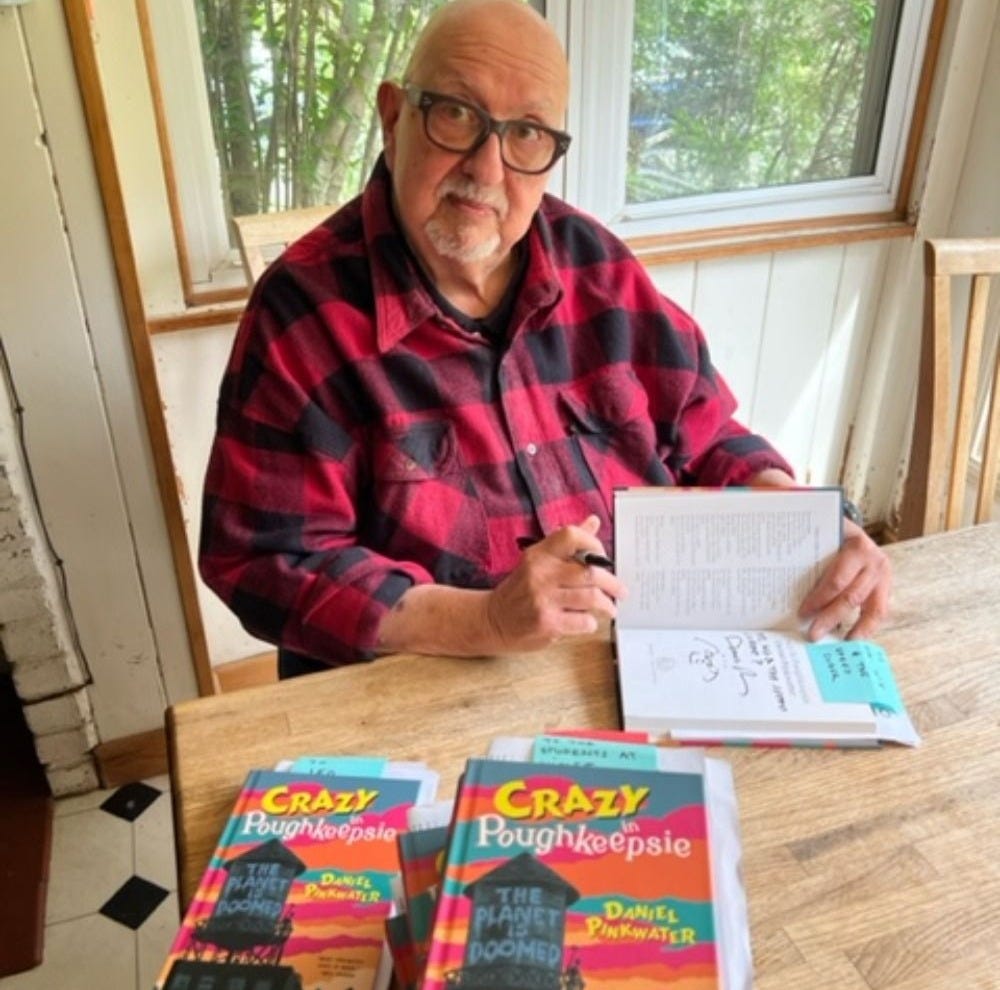
My first brush with Daniel Pinkwater’s singular wit, quirk and gentleness came in the early ‘90s. That was when I picked up the children’s book Aunt Lulu, about an Alaskan librarian who moves — together with her 14 mushing, book-delivering huskies — to Parsippany, New Jersey.
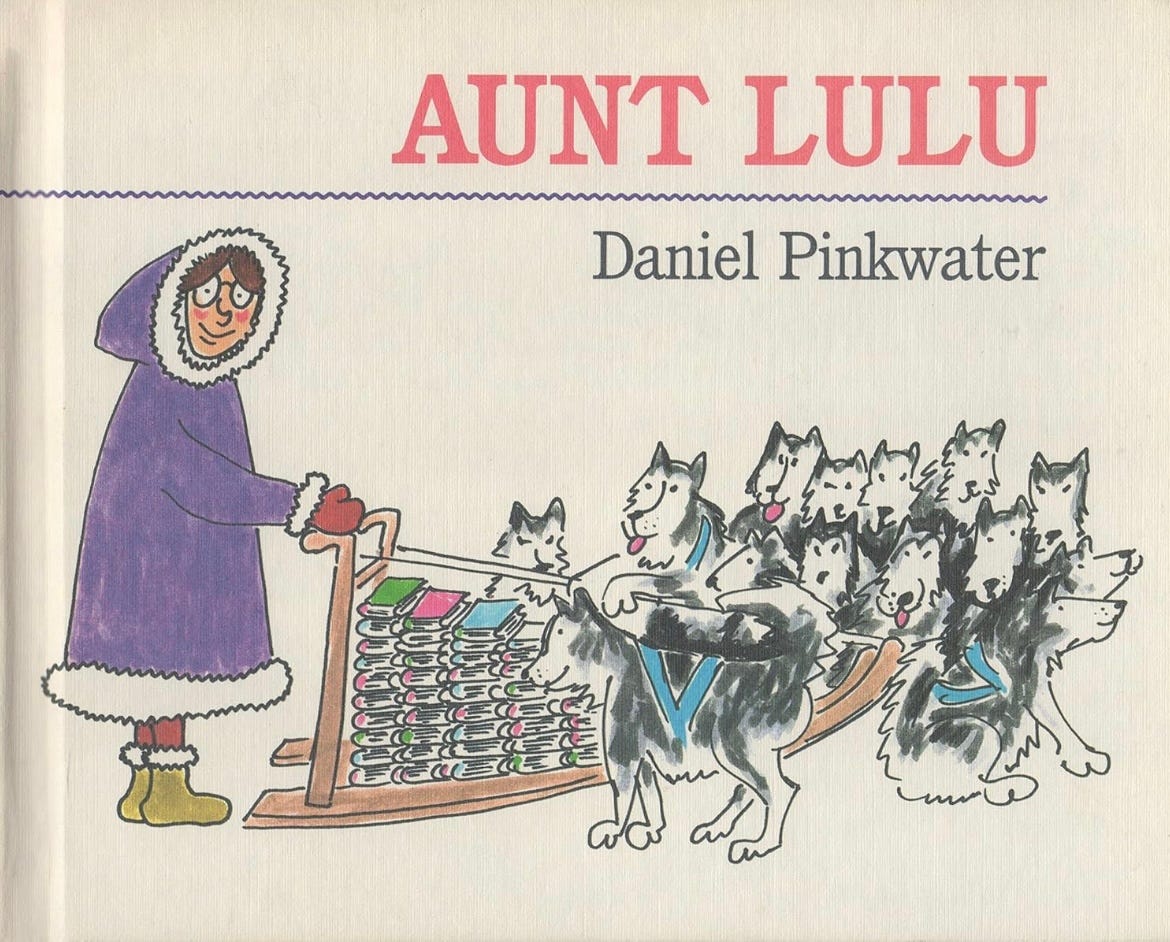
Several years later, my grandmother — technically known as Gaga, and herself a library worker — brought home a box of books including the inimitable Borgel, the story of a young boy and his 111-year-old uncle who go on a trip through time-space-and-the-other. (It should be noted that time, in this book, is “like a map of the state of New Jersey” — no other state, because, as Borgel succinctly explains, they’re the wrong shape.)
The book radiates Pinkwater’s signature silliness, while containing one of the more beautiful passages I’ve ever read — involving a Popsicle, no less. (I would be remiss not to note that food is a key theme in the Pinkwater oeuvre. That and dogs. What’s not to like?)
Anyway, I was hooked forever. So was my sister. We devoured the rest of Pinkwater’s books, from his hilarious and comforting essay collection Hoboken Fish & Chicago Whistle (you may, by now, have noted a New Jersey theme) to the singular Wingman, about a young Chinese-American boy’s struggles growing up in 1950s NYC, aided by a kindly Chinese superhero.
While Pinkwater has mainly — and prolifically — written books intended for children, they resonate with adults just as much. I got to observe this on a recent snowy day in Boston, where I’d been engaged to do a program at a local library. This was supposed to be a puppet show for tiny tots, but — I guess because of the weather and school closures — instead I was faced with a group of older children and their grown-ups. What to do? On a whim, I grabbed the library’s copy of Irving & Muktuk: Two Bad Bears, a very funny Pinkwater book about a pair of unscrupulous polar bears who attempt to crash a blueberry muffin festival. (I probably do not have to tell you which U.S. state this festival occurs in.) Armed with a grizzly bear puppet (who basically just sat there, shut up and listened), I read the book to a crowd of kids and parents who could not have been more delighted. The best part was hearing the adults laugh and react. They were 100% there for it, invested in how the story turned out — and you will find no spoilers here. For that brief time, they were just big kids excited for storytime, and, once the story was over, eager for more. (Good thing there are Irving and Muktuk sequels.)
I was lucky enough to get to know Daniel personally a year or two ago, and luckier still that he let me interview him for this blog. Read on to hear his thoughts on writing, improvisation vs. planning, and of course the hard-hitting issue of stuffed fruit bats.
Nicola: Let’s start in the present: What would you like to say about your new book, Jules, Penny and the Rooster — its origins, your thoughts on it, or anything else? Was your collie, Peach, a source of inspiration here?
Daniel: It's a true story, anyway the beginning of it. Jill [Pinkwater’s wife, an author and illustrator who passed away in 2022] wrote a letter, and won a collie. She named it Penny. All the family members in the book are based on real members of her family.
Nicola: And now, rewinding: what was the first thing you remember ever writing? Do you have specific memories of what it felt like?
Daniel: It was a large lopsided capital A I did with two pencils, one a regular graphite and one that drew red. I couldn't read yet, and I may not have known any other letters. I remember this very well, and that I was pleased with the piece of paper, which also had some scribbles.
Nicola: When you were growing up, what books meant a lot to you — perhaps influencing your writing, or changing the way you saw things, or resonating with you in a big way?
Daniel: I didn't know they were books exactly--the kids played out plots in the backyards. Jules Verne was popular, and Victor Hugo. These games may have been based on Classics Comics, or readings by much older kids. We also played famous battles.
Nicola: Of all the characters you’ve created, do you have any particular favorites?
Daniel: It's only the one character--in all the books.
Nicola: You give the impression in many of your stories that you're improvising from beginning to end. Is this true, or an illusion the reader takes away? Do you ever plan ahead what you're going to write? Or do things tend to hit you on the spot, and that's it, and you go for them?
Daniel: Is planning different from improvising?
Nicola: Do you have pieces or playlists of music that you listen to while writing, or specific music you associate with certain books of yours, whether they directly inspired them or not?
Daniel: There is one tune. I play it over and over. Flat Foot Floogie with a Floy Floy. (Floydoy floydoy...)
Nicola: Is there a book you'd like to write but haven't for some reason, and do you plan to?
Daniel: Yes there is. The reason I haven't written it is that I haven't thought of it, and yes I plan to. Every day I plan to.
Nicola: Do you speak often to kid readers of yours?
Daniel: I used to. Then the invitations stopped. So now, sort of never.
Nicola: What compelled you to write (what you told me may have been) your lone "straight story," structurally speaking: Wingman, a relatively serious story about a boy grappling with being Chinese-American in 1950s New York? It still has funny moments and surrealism but it is a huge departure from much of your work — tonally, and in other ways. And it's incredibly sweet, not that others aren't, but something striking sets it apart.
Daniel: My neighbor told me his actual story, and I adapted, that is to say, stole, it.
Nicola: About Borgel — and I think this applies to a few others as well — the first few chapters deal mainly with everyday things. Then, suddenly, the characters are traveling through time, space and the other. Was this planned, or was it a spur-of-the-moment decision?
Daniel: It was a planned spur-of-the-moment decision.
Nicola: Would Victor Borge have made a good Borgel, if the story had been adapted for film while he was alive?
Daniel: Was Victor Borge that musical comedian? I barely remember.
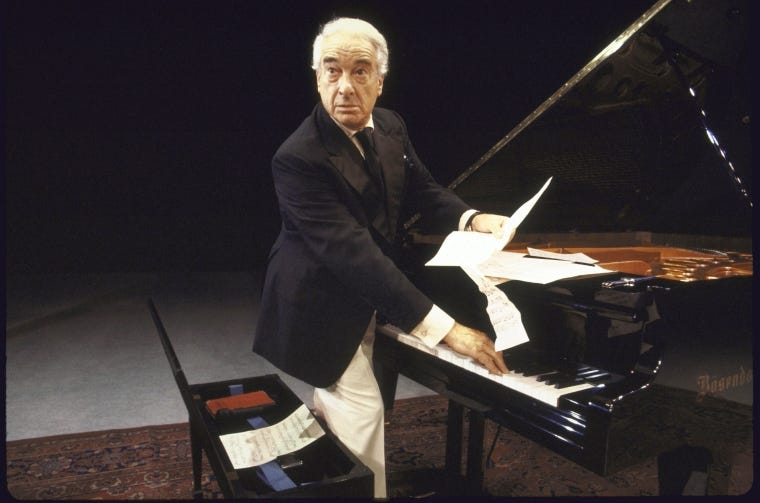
Nicola: And last, and perhaps most importantly: What is the significance of using a stuffed fruit bat as a weapon? This has cropped up in more than one title.
Daniel: In the hands of a trained and talented individual the fruit bat, stuffed or in vivo, is an effective weapon for assault, defense, or gathering fruit.




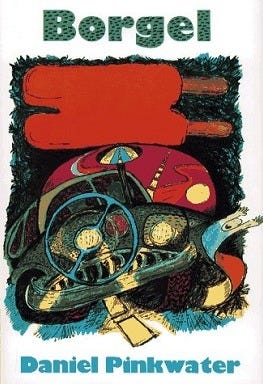
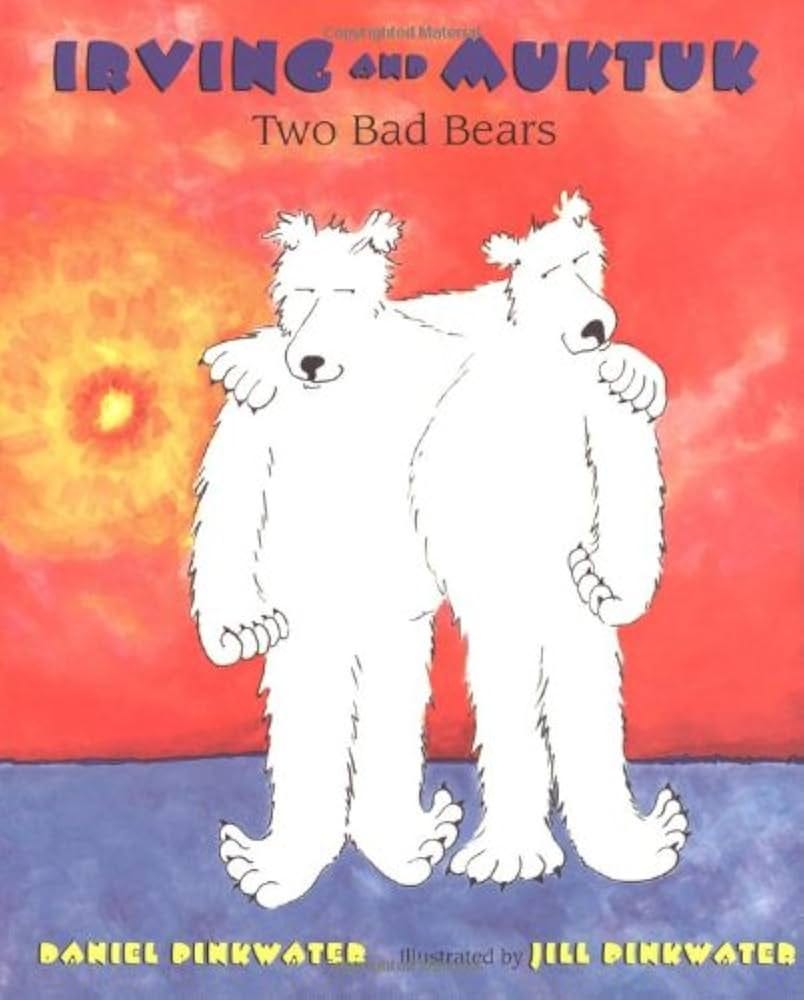

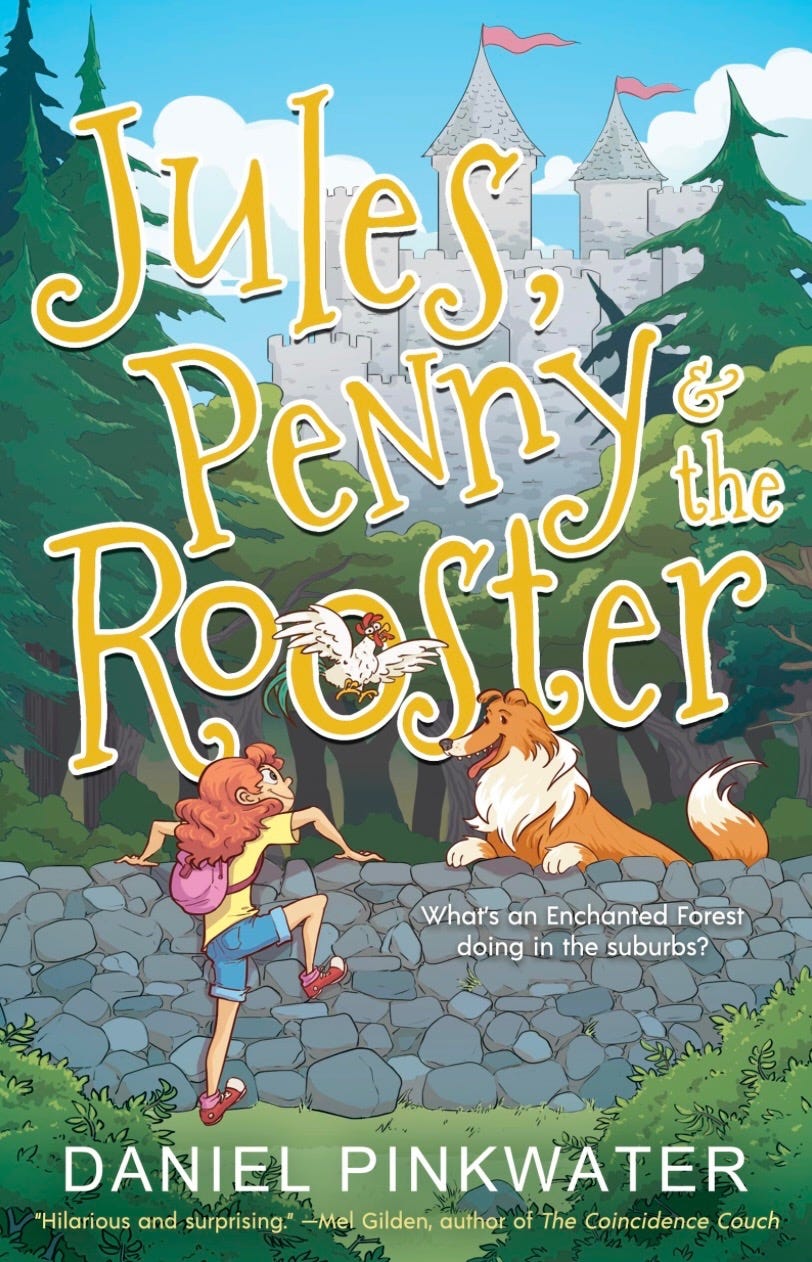
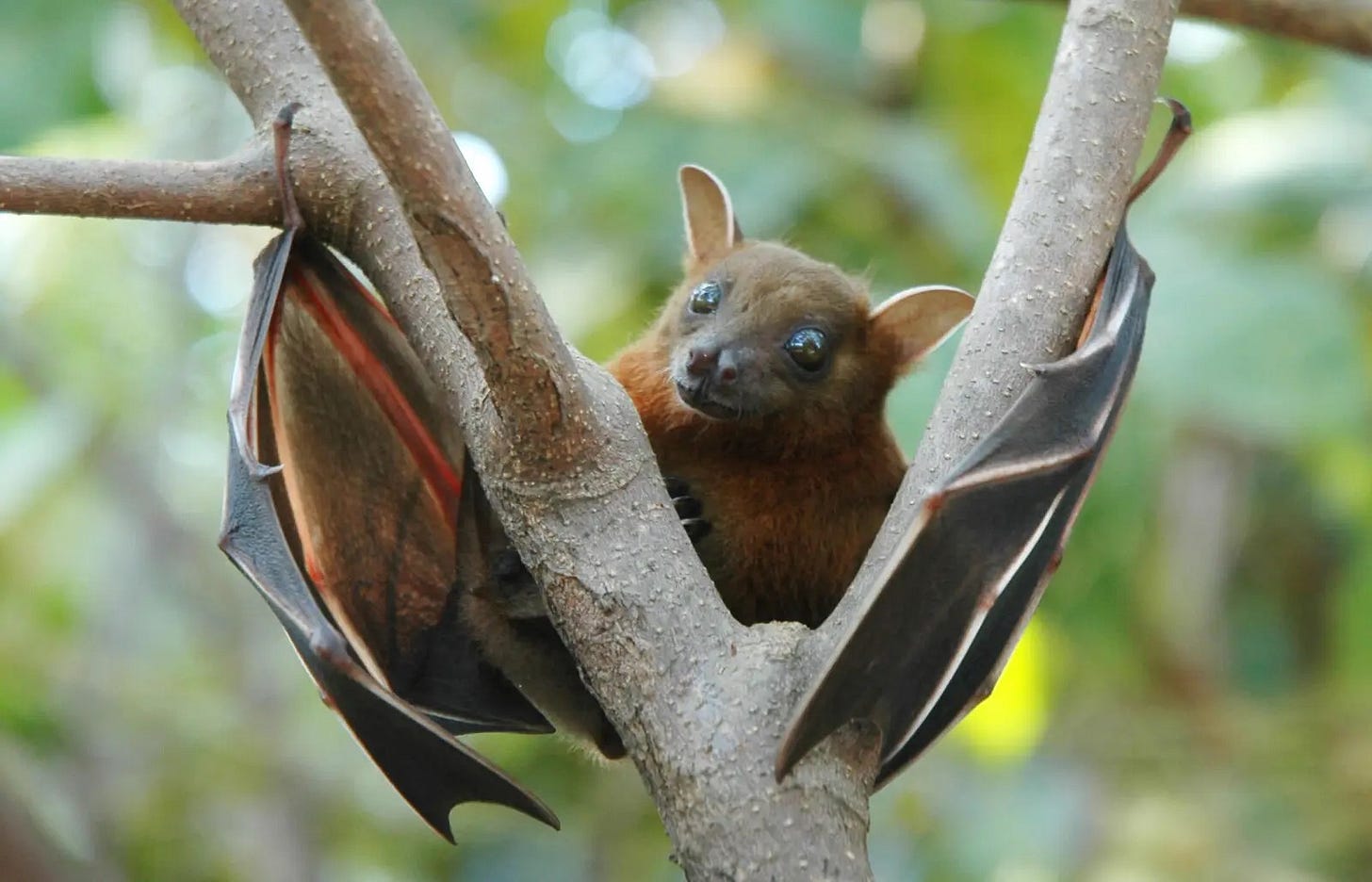
Just to follow up: I finished reading Wingman last night. It was a wonderful story that I did not want to end, I was so taken with the characters and the unfolding of events. I am grateful to have learned about this gifted writer from your interview with him. More books to read!
This was a wonderful interview and a beautiful introduction to Daniel Pinkwater's books. Thank you for introducing him to those, such as I, who have not read them. Next on my list...